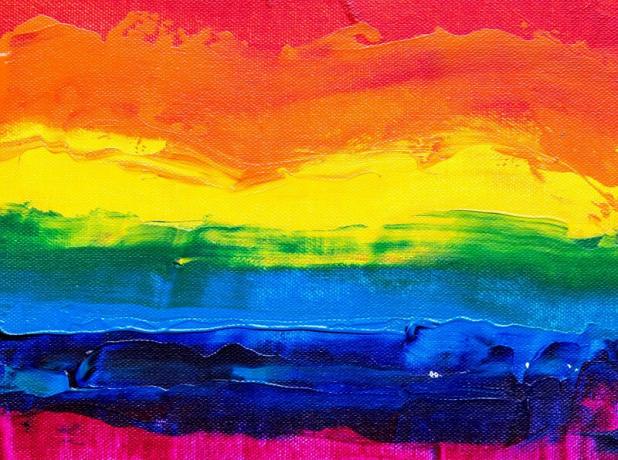Homophobia, transphobia and biphobia: understanding these forms of discrimination
Both homophobia, biphobia and transphobia are types of discrimination so harmful that even today they cause many deaths year after year.
Although they not only produce discomfort due to the cost they suppose in people who lose their lives due to murders or suicides; It should also be borne in mind that even when they do not kill directly, they give rise to lost rounds; people who for decades have been afraid to show themselves as they are and try to hide it from everyone, people who try to impose on themselves a lifestyle that does not fit with their sexual orientation, etc.
In this article we will talk about the psychological implications of homophobia, transphobia and biphobia to better understand the problems involved.
- Related article: "Stereotypes, Prejudice, and Discrimination: Why Should We Avoid Prejudging?"
What do homophobia, transphobia and biphobia have in common?
These three forms of discrimination have as a common ingredient that they arise from the imposition of gender roles. The sexual division of labor has meant that, for many centuries,
the fact of being male or female is not seen simply as a set of biological characteristics, but a series of stereotypes and expectations have been associated with profound implications for the path that society poses to its members depending on which of these two categories fit.The activities, values and attitudes that are linked to the fact of being a man or a woman vary depending on the culture in which we look at you; however, what does not change is that there is a radical division of gender roles in all human societies today. In all the tribes and ethnic groups of the world, women and men have a series of assigned tasks, a set of lifestyles that they cannot carry out, and even different rules when it comes to expressing their emotions.

Of course, all this is reflected in the way in which people express their gender identity and sexual orientation; and it is that it very rarely happens that a culture accepts trans and non-heterosexuality at the same time, since these two phenomena, each in its own way, challenge the roles of gender, which have as their origin the way in which the tasks related to reproduction and the maintenance of a tribe or a family are interpreted by having babies and taking care of them
Both sexual activity and child rearing are experiences that for millennia we have linked to the differences between men and women, since have to do with reproduction, and that is why rigid norms have been created to delimit the roles of members of both sexes. And those who break those rules are punished in various ways.
- You may be interested: "5 examples of gender roles (and their effects on society)"
Self-rejection as a result of discrimination
As we have seen, both in homophobia and in transphobia and biphobia there are cultural dynamics that have been operating for centuries and that can even be embodied in laws and political measures that discriminate against non-heterosexual or non-heterosexual minorities. cisgender.
However, these phenomena are not just something that works at a social level, through the interactions between people and groups. Also are reflected at the individual level, in the way of thinking and feeling of people as individuals. And this is the reason why, among other things, even the victims of this type of discrimination can reproduce homophobia, transphobia and biphobia and interpret reality through them, harming themselves themselves.
In cases like this, what is known as internalized homophobia, transphobia or biphobia occurs; that is to say, that the person who is not heterosexual or is not cis finds himself in a situation in which his identity collides with what considers acceptable, assuming that what is out of "normal" in that sense is something bad, something that should be hidden.
This is because in the vast majority of cases, boys and girls learn earlier to reject trans or non-heterosexual people to understand their sexual identity and orientation sexual. By the time they figure out how they feel or who they are sexually attracted to, they have internalized that only what perfectly fits gender roles is acceptable. And obviously, makes the self-discovery process very burdensome for the rejection of all the stereotypes associated with trans, homosexual and bisexual people, which on the one hand produces dynamics of behavior that the individual imposes on himself despite his true desires, and on the other hand leads him not to dare to know himself better due to the fear.
On the other hand, even those who already know on an intellectual/cognitive level that they are homosexual, bisexual or trans may desperately seek ways to distance themselves from these stereotypes. This means that there are not a few who even discriminate against other members of the LGBT community to "mark distances", make it clear that they do not are like them and that, in some way or another, they are like cis and heterosexual people except on rare occasions reserved for the privacy. Because of this, not only is discrimination against these minorities still going on, but self-rejection also continues to be reproduced and, on the other hand, LGBT people they cannot even feel totally safe and respected in their own meeting contexts and in the activities linked to the subcultures that are born in those places.
- Related article: "Do you really know what self-esteem is?"
Do you want to have professional psychological assistance?
If you are looking for psychology services for adults and adolescents, contact me.
My name is Thomas Saint Cecilia, I am a psychologist, and I specialize in the cognitive-behavioral model applied to problems such as low self-esteem, excessive anxiety, depressive-type symptoms, couple crises, and other forms of emotional discomfort or expressed in relationships personal.
